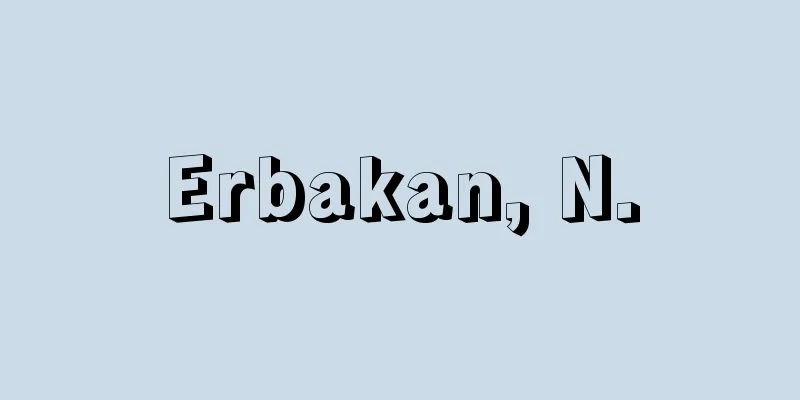Greece - Girisia (English spelling)

OverviewA republic in southeastern Europe, consisting of the southern tip of the Balkan Peninsula and the surrounding islands. In Greek, it is called Ellas or Ellada. The kanji "希臘" is a Chinese translation of the ancient Greek name Hellas, and in Japan it was used as a phonetic spelling of "ギリシア". The Japanese name "グリシア" comes from the Portuguese word Grécia, which is thought to have been corrupted from the ancient word "グレシャ". Greece is English. The official name is the Greek Republic Elliniki Dimokratia (Greek) / Hellenic Republic (English). The mainland, which protrudes into the eastern Mediterranean, is surrounded by the Ionian Sea to the west, the Aegean Sea to the east and northeast, and the Mediterranean Sea to the south. It borders Albania, the Republic of North Macedonia (formerly the Republic of Macedonia), and Bulgaria to the north, and Turkey to the northeast, with a total border length of 1,170.2 km. It has an area of 131,957 square kilometers, of which 106,915 square kilometers (81%) is the mainland, and the remaining 25,042 square kilometers (19%) is made up of numerous islands, large and small. It has a population of 10,964,020 (2001 census). Its capital is Athens, or Athine, and its ancient name is Athenai, and it is called Athens in Japan. The current Greek Republic originated as a kingdom that gained independence from the Ottoman Empire in the early 19th century and was established mainly in the Peloponnese Peninsula and the Cyclades (anciently known as the Cyclades) Islands. Its current boundaries were largely established between the 1910s and early 1920s, from the Balkan Wars to the Greco-Turkish Wars. Greece is the cradle of modern Western civilization, and with its beautiful scenery and warm climate, it attracts many foreign tourists from Western Europe and elsewhere as a tourist and health resort. In 1981, Greece became the 10th member state of the European Community (EC), "the oldest and newest member of Western Europe," and joined the European Union (EU), which evolved from the EC and was established in 1993, and NATO (North Atlantic Treaty Organization). Despite the difficult issues it faces with its neighboring countries, it is moving forward as a member of Europe while engaging in multilateral diplomacy. [Tomoko Mashita and Shoji Kiyonaga] NatureThe Tertiary period fold belt, an extension of the Dinaric Alps to the north, forms several mountain chains in the Pindus Mountains, running north to south along the western side of the Greek mainland. The western slope facing the Ionian Sea receives more rainfall and is rich in forests, but the terrain is rugged and the mountain basins are isolated. The folds split into several parts in the southern part of the peninsula, continuing with the east-west folds of Rhodes and Crete (ancient name Crete). These new folded mountains are mainly composed of limestone, mixed with sandstone and schist. Due to the lack of forests, the white limestone rock surface is exposed in various places, and they produce a lot of high-quality marble, which was also used for building ancient temples. In the north and south of the Aegean Sea, there are old mountain ranges made of ancient crystalline rocks, such as the Thuracan (ancient Thrace) and Cycladic massifs, and as a result of the Alpine orogeny, the peninsula has a complex topography of mountains, hills, and basins. Greece's highest peak, Mount Olympus (ancient Olympus) (2,917 meters), is located at the western end of the Thrace Mountains. In addition, mountains over 2,000 meters rise in various places, and the country's land area is 43% mountainous, 27% semi-mountainous, and 30% plain. Most of the Cyclades has become an archipelago as a result of subsidence. The coastline of mainland Greece is a ria coastline with extremely complex curves, and the entire coastline of Greece including the islands is 15,021 km long. The northern part of the mainland receives considerable precipitation in summer, while the inland areas of Macedonia and Thrace, in particular, experience low winter temperatures and have a strong continental climate. The southern part of the peninsula and the islands have a typical Mediterranean climate, with warm and humid winters and dry, hot summers. The extremely dry summers are due to the prevailing local winds, such as the ethsia or etissia (northwesterly winds) and sirocco (southern winds). [Tomoko Mashita and Shoji Kiyonaga] GeographyAdministratively, apart from the metropolitan area of Athens (Greater Athens or Atiki, ancient Attica), the country is divided into 12 regions, each of which is further divided into nomos (prefectures). A nomos is modelled on the French administrative divisions, with a total of 51 prefectures, each with its own prefecture capital. The 12 regions other than Atiki are: Eastern Macedonia and Thrace, Western Greece, Western Macedonia, the Ionian Islands, Epirus (or Epirus, ancient Epirus), Central Macedonia, Crete (ancient Crete), South Aegean, Peloponnese, Central Greece, Thessaly (ancient Thessaly), and North Aegean (1997). Geographically, the country can be divided into five regions: [Tomoko Mashita and Shoji Kiyonaga] Aegean IslandsIt is an archipelago consisting of the islands in the northeastern Aegean Sea to the east, the Northern Sporades and Cyclades islands to the west, and an archipelago of islands in the south with Crete at its center. It is the birthplace of Greek civilization and has many ruins, but economically it is underdeveloped, with few industries except for tourism for foreign visitors. Agriculture is poor due to the Mediterranean climate, which is very dry in the summer, and the land is barren, but olive cultivation is thriving on the island of Lesbos. [Tomoko Mashita and Shoji Kiyonaga] PeloponneseIt is also called Peloponnese. It is an island-like peninsula, partly connected to the mainland by the Isthmus of Corinth (or Corinthos, ancient name Corinth), and in the Middle Ages was called Morea (meaning "mulberry leaf") due to its shape. Many of the surrounding islands are volcanic, while the peninsula is made of limestone rocks. The soil is generally infertile and the climate is very dry, so grapes, olives, and citrus fruits are the main crops. There are many ruins of ancient cities, and coupled with the warm climate, tourism is thriving. [Tomoko Mashita and Shoji Kiyonaga] Central GreeceIt includes the peninsula north of the Gulf of Corinth, up to the Othrys Mountains on the northwestern shore of the island of Evia (ancient name Euboea). It is at the southern end of the Pindus Mountains and is mostly mountainous, but it has been blessed with minerals since ancient times, producing magnesium, lead, zinc, marble, etc. In the southeast is the capital Athens, and together with Piraeus (or Piraeus, ancient name Peiraeus) to the south, it forms the most developed region in Greece and is also an industrial area. The Attic Plain is home to suburban agriculture with Athens as its consumer market. [Tomoko Mashita and Shoji Kiyonaga] Northern GreeceThis region extends from a line connecting the Gulf of Arta (Ambrakis) on the Ionian Sea side and the Othris Mountains to the northern border. The climate is more continental than south of central Greece, and oaks are more prevalent than olive trees. The Pindus Mountains run north to south through the middle, dividing the peninsula in two, creating a striking contrast between the eastern and western coasts. The Epirus region in the west is mountainous and backward, but olives, citrus fruits, and grains are cultivated intensively, and many of the residents are engaged in agriculture. The Thessaly region in the east, which encompasses the plains of the Pinios River basin, is a fertile agricultural region that mainly produces tobacco and cotton. The central city of Larissa and the port town of Volos are also home to heavy industries such as chemicals and shipbuilding. [Tomoko Mashita and Shoji Kiyonaga] Macedonia and ThraceTo the west, the Chalkidiki (ancient name: Chalcidike) peninsula juts out into the Aegean Sea, and to the east it borders Turkey. The region was incorporated into Greece in 1913 and 1919, and was economically backward at the time. Modern industry has not yet developed in Thrace, and tobacco is cultivated there. The capital city of Thrace is Komotini. In Macedonia, industrialization has progressed with the construction of hydroelectric power plants and dams through river development, and the country is blessed with mineral products, so the development of the chemical industry is expected, and agriculture such as wheat, corn, and cotton has also developed. The capital city is Thessaloniki (ancient name: Thessalonike). [Tomoko Mashita and Shoji Kiyonaga] historyAround 1900 BC, the Achaeans and Ionians inherited the Cretan civilization and built the Mycenaean civilization, centered on the Greek mainland, which became the origin of ancient Greece. Later, around 1200 BC, the Dorians and others moved south, destroyed the Mycenaean civilization, and advanced into Asia Minor. Around 750 BC to 700 BC, many polises (city-states) were established, and the period of prosperity of the polises, centered around Sparta and Athens, was also the heyday of Greece. Around 750 BC to 550 BC, colonization took place from the Black Sea to the northwestern Mediterranean, and many cities along the Mediterranean coast that still thrive today, such as Istanbul, Naples, and Marseille, were established. After the Peloponnesian War (431 BC to 404 BC), Macedonia rose to power during the conflict between city-states, and Greece came under its control in 338 BC. After that, Greece passed through the Hellenistic period, the Roman provincial period, and the Byzantine Empire period when it belonged to the Eastern Roman Empire after the division of Rome into East and West, but for about 400 years after 1453 it was under the rule of a foreign nation, Turkey, which led to a period of hardship for Greece. In 1829, Greece won the War of Independence and established the modern Greek state, but ancient Greece in particular holds great significance in Greek history as the origin of European culture. [Tomoko Mashita and Shoji Kiyonaga] PoliticsAchieving national independence and democracyIn 1832, the Kingdom of Hellas was established under the patronage of the great powers, with the Bavarian Prince Otto I (1815-1867, reigned 1832-1862). Western European philhellenes (Hellenic enthusiasts) and Western-educated Greek intellectuals were overjoyed at this, calling it a "revival of classical Greece." However, under the pressure of the great powers and the restorationist rule, the Greek economy did not improve, and the people were dissatisfied with the fact that many areas inhabited by Greek people, such as the Aegean Islands, Epirus, and Thessaly, were still under the control of the Ottoman Empire. Thus, Greek politics after the establishment of the kingdom developed into a process of achieving true independence for the Greek people - the recovery of territory and freedom from the control of the great powers - and the true realization of Greek democracy. A coup d'état took place on September 14-15, 1843, and the following year a constitution was established, turning Greece into a constitutional monarchy. Otto was deposed by the people in 1862. The following year, the great powers agreed to make King George I (1845-1913, reigned 1863-1913) of Denmark the new king, but this was on the condition that Britain ceded the Ionian Islands to Greece. Territorially, Greece gained Thessaly in 1881 after the Russo-Turkish War of 1877-1878, annexed Crete in the First Balkan War in 1912, and was ceded South Macedonia and other territories by Bulgaria in the Second Balkan War in 1913. Shortly before this war, in March 1913, King George was assassinated in Thessaloniki, and his heir, Konstantinos I (1868-1923, reigned 1913-1917, 1920-1922), whose wife was the sister of the German emperor, succeeded him to the throne. When World War I broke out in July 1914, Prime Minister Venizelos forced the King, who sided with Germany, to abdicate in March 1917, and Greece entered the war on the side of the Triple Entente (Great Britain, France, and Russia). By this time, Greek territorial recoveryism had become an expansionist idea known as the "Megari Idea." After World War I, Venizelos, with the support of Great Britain, advanced from Smyrna (now Izmir) to claim the annexation of the Greek areas of Asia Minor, but suffered a major defeat in a counterattack by Kemal Ataturk of Turkey (1922). Greece lost Smyrna under the Treaty of Lausanne in 1923, and it was also agreed that the Greek minorities remaining in Asia Minor and Bulgaria would be exchanged for Muslims. The Greek economy was exhausted after the defeat in the war and the need to protect repatriated Greeks, and the country managed to survive for four years until 1925 with the aid of the League of Nations and the United States. During that time, Greece became a republic through a national referendum in 1924, but was returned to the monarchy through another national referendum in 1935. Furthermore, on August 4, 1936, General Ioannis Metaxas (1871-1941) abolished the constitution with the consent of the king and established a dictatorship (until his death in January 1941), but during World War II, from 1941 to 1944, the country was under military occupation by Germany and Italy. During and after World War II, left-wing forces grew in Greece, which intensified the conflict between the left and the right, even leading to a civil war at one point. During that time, in September 1946, King George II (1890-1947, reigned 1922-1924, 1935-1947), who had been in exile since 1941, returned to the country. After 1947, Greece was under American protection, the Communist Party was outlawed, and right-wing governments continued after the elections of 1950 and 1951, and the country joined NATO (North Atlantic Treaty Organization) in 1952 (it withdrew from the organization in 1974). Furthermore, from 1967 to 1974, a military dictatorship was established under Colonel George Papadopoulus (1919-1999), who abolished the monarchy and established a republic in 1973. There were frequent coups and political instability, but the Papadopoulos regime collapsed following the Cyprus incident in 1974, and freedom of speech and the press was restored after a civilian cabinet was established with Karamanlis as prime minister. [Tomoko Mashita and Shoji Kiyonaga] Political system and political partiesThe political system is a presidential parliamentary republic. After the return to democracy, the 1952 Kingdom Constitution was partially and provisionally applied, but a national referendum in 1974 confirmed the republic as a constitution, and a new constitution was enacted in 1975. The president, who serves as head of state, is elected by a two-thirds majority in the National Assembly, serves a five-year term, and can only be re-elected once. The president has the power to appoint and dismiss cabinet members, including the prime minister, and serves as commander-in-chief of the three armed forces. The parliament is unicameral, with 300 seats elected by direct proportional representation, and serves a four-year term. In May 1980, Karamanlis stepped down as prime minister and leader of the New Democracy Party (ND) to become president. That same month, Laris was elected as his successor as ND leader and took over the government, resolving Greece's most pressing foreign policy issues: rejoining NATO, which it had withdrawn from in 1974 (October 1980), and formally joining the EC (January 1981). In response, the Pan-Hellenic Socialist Movement (PASOK), the largest opposition party led by Papandreou, advocated various socialist economic policies in domestic affairs, while in foreign affairs it gained popular support by calling for withdrawal from NATO and the EC, and the removal of US military bases in Greece. In the general election of October 1981, the party won a much larger majority than expected, and established Greece's first socialist government. The reason for PASOK's victory is said to be that, while the long-standing conservative ND government's failed economic policies and rising inflation were putting a strain on the lives of the people, PASOK, under the leadership of its charismatic leader Papandreou, adopted the slogan "Aragi" (change), emphasized nationalistic policies to the general public, and preached policies to correct inequality, which resonated particularly with young people and working people who favor change. After taking power and becoming prime minister, Papandreou promoted policies to protect small and medium-sized enterprises and farmers, but his popularity waned due to a strict controlled economy, a growing budget deficit, and allegations of bribery among his cabinet ministers. In March 1985, conservative Karamanlis was replaced by Supreme Court judge Christos Sartzetakis (1929-2022), who was supported by PASOK, who was elected as the new president after a close election, temporarily strengthening the foundations of the Papandreou administration, but the administration's popularity continued to decline in the second half of the 1980s, and he finally resigned after failing to win a majority in the general election of June 1989. Then, in the general election of April 1990, the ND won a majority on its own, and party leader Constantine Mitsotakis (1918-2017) became prime minister, and Karamanlis returned to the presidency. However, internal disputes over the Macedonian issue and economic policy caused the ND to split, and PASOK won a landslide victory in the general election in October 1993, with party leader Papandreou becoming prime minister, and a socialist government was restored for the first time in four years. The powers of the president were greatly reduced by constitutional reform in 1986, but the conservative politician Konstantinos Stephanopoulos (1926-2016), who was supported by PASOK, was elected in the 1995 presidential election (re-elected in February 2000). In January 1996, Papandreou resigned due to his deteriorating health, and Constantinos Simitis (1936-) became his successor as Prime Minister. Papandreou died in June, and Simitis became the leader of PASOK instead. In the general election in September, while the left-wing parties such as the Communist Party, the Left Progressive Alliance, and the Democratic Social Movement all made great strides, PASOK overtook the ND to secure a majority, and the new Simitis government was formed. In this election, the right-wing party "Political Spring", to which President Stephanopoulos belonged, lost its seats. PASOK had maintained a long-term government, but criticism arose over political corruption and rising unemployment, and in the general election in March 2004, it was defeated by the ND, leading to a change of government and the appointment of ND's Kostas Karamanlis (1956-), the nephew of the former president, as Prime Minister. Following the end of President Stephanopoulos' term in March 2005, Karolos Papoulias (1929-2021) was elected president. In the general election of September 2007, the ND maintained a majority, and the second Karamanlis administration was inaugurated. [Tomoko Mashita and Shoji Kiyonaga] DiplomacyThe New Democracy (ND) government's basic policy was to strengthen the alliance with Western European countries, and it achieved Greece's return to NATO and formal membership in the EC, and continued to engage in dialogue with neighboring Turkey in a cooperative manner regarding pending issues. In contrast, the Pan-Hellenic Socialist Movement (PASOK) prioritized national interests and set a basic policy of non-alignment, not belonging to either the East or West camps, and strengthening and cooperating with Arab and other Third World countries, but after coming to power it became more flexible and in 1983 it even accepted the continued existence of US military bases. Since the collapse of the Cold War structure in 1991, Greece has pursued a multifaceted diplomacy based on its membership of the EU and NATO, and its status as a member of Europe. However, tensions continue to exist with neighboring countries due to issues with Turkey over the Cyprus issue and the sovereignty dispute over uninhabited islands in the eastern Aegean Sea, with the Republic of Macedonia over the name of Macedonia, and with Albania over ethnic issues between the people of both countries. However, negotiations to normalize relations are underway, and Prime Minister Karamanlis visited Turkey in 2008. [Tomoko Mashita and Shoji Kiyonaga] The issue of the name of Macedonia was resolved in June 2018 when the Republic of Macedonia agreed to change the country's name to the "Republic of North Macedonia." In January 2019, constitutional amendments were approved in the Republic of Macedonia, and the name change to the "Republic of North Macedonia" was internationally recognized in February, and the matter was settled. [Editorial Department] Economy and IndustryGreece's economy faces difficult problems, such as the small scale of enterprises in both the agricultural and industrial sectors and delays in the introduction of new technology. On the other hand, however, the country enjoys an abundant and high-quality labor force and is geographically blessed with being at the junction of three continents, close to the huge markets and resource supply bases of the EU, the Middle East, Eastern Europe, and Africa. Against this background, the government is promoting active policies to modernize industry and agriculture in an effort to promote the economy. In terms of the share of gross national product by sector, agriculture, forestry, and fisheries accounted for 14.9%, construction and mining 25.0%, and commerce, transport, and communication services 60.1% (1994), with tourism-related industries accounting for a significant proportion. [Tomoko Mashita and Shoji Kiyonaga] Resources, Agriculture and ForestryGreece has many mineral resources, but many remain untapped due to the underdevelopment of the country's refining industry and backward mining technology. Major mineral products include bauxite, nickel, magnesite, lignite (coal that has not yet been converted into coal), and manganese ore. Bauxite in particular is abundant, and is one of Greece's main exports. Lignite plays a major role in Greece, which has few energy sources. As for petroleum, production began in July 1981 at the Prinos oil field, discovered in 1974 and located off the coast of Thasos island in the northern Aegean Sea. Electricity is mainly generated by thermal power plants. Despite its mountainous location and extremely dry summers, Greece has traditionally been an agricultural country, with its main crops being barley, wheat, cotton (only in the plains), tobacco, olives, grapes, and citrus fruits. The traditional Greek rural landscape was characterized by the cultivation of olives, grapes, and other agricultural products while grazing goats and sheep in the rocky mountain valleys, achieving meager self-sufficiency, and even today such traditional rural villages can be found on isolated islands and mountain basins. In response to this, the government is promoting measures to improve productivity, such as expanding irrigation facilities, introducing agricultural machinery, and actively using chemical fertilizers. [Tomoko Mashita and Shoji Kiyonaga] Industry, Transport and CommunicationsGreek industry is centered on consumer goods and intermediate materials such as food, tobacco, textiles, footwear, printing, and non-ferrous metals, but the country is aiming to move towards heavy industrialization in areas such as chemicals, metals, and machinery, and is in the process of doing so. Even now, there are only a few large companies, and the number of low-productivity small companies with nine employees or less is overwhelmingly greater, accounting for 93.5% of the total, but conversely, these small companies account for a very small proportion of total industrial production. The Greek government gives preferential treatment to investment by foreign companies, so many companies from advanced industrial countries have set up shop in Greece. Looking at the geographic distribution of all industrial companies, 33.6% are concentrated in Greater Athens (the metropolitan area including Athens and Piraeus), 12.6% in Thessaloniki, followed by Patrai, Heraklion, Larissa, Kastoria, etc. (1984). The transport and communications industries, along with manufacturing and agriculture, forestry and fisheries, are a major part of the Greek economy. As Greece promotes industrialization, the country is expanding its road network, constructing expressways, expanding ports, and expanding communications facilities. Both railroads and communications are state-run, but the Greek government is promoting plans to privatize public enterprises. The shipping industry has traditionally played an important role, and there are many examples of global shipping companies investing in domestic companies. Olympic Air, the airline run by the large shipowner Onassis under a contract with the government, was nationalized after his death in 1975, but later reprivatized and was sold to a major financial group in 2009. [Tomoko Mashita and Shoji Kiyonaga] Import/ExportGreece's trade balance is in a large deficit every year, and the difference is made up by shipping revenues, tourism revenues, migrant remittances, and inflows of foreign capital. Over 70% of Greek exports are destined for Europe and America, and within Europe, just five countries - Germany, Italy, France, the UK, and the Netherlands - account for over 50% of the total. As with exports, Greece is also dependent on Europe and America for just under 70% of its imports. In terms of items, the country is highly dependent on imports of industrial raw materials, fuel, capital goods, and durable consumer goods such as automobiles and household electrical appliances. On the other hand, primary products and food account for the majority of exports (1994). [Tomoko Mashita and Shoji Kiyonaga] societyPeople and LanguageThe majority of the population is of the Atlantic-Mediterranean race, and are Greeks who speak Greek, although there are many dialects. The rest are small numbers of Albanians and Bulgarians in the north and west. In the northwest, pastoralists called Brahis, who speak a Romanian language, live a nomadic lifestyle. Turks also remain in the northeast, although they do not appear in government statistics. Modern Greeks are the result of the interbreeding that occurred during the several invasions of various ethnic groups over the past several thousand years of history, and their physical anthropological characteristics are thought to be quite different from those of ancient Greeks. However, the extreme theory asserted by the German medieval historian JP Fallmerayer (1790-1861) in the first half of the 19th century, that the ancient Greeks died out in the early Middle Ages, that modern Greeks are the descendants of Slavs and Albanians, and that "there is no longer a single vein of Greek blood in the veins of the Greek population today," has since been revised by empirical research by historians both in Greece and abroad. It is true that the Greeks have intermarried with Slavs, Arabs, Turks, and other peoples, but culturally they are said to have continued to have an influence on the invading ethnic groups. The official language is Modern Greek, which is a successor to Ancient Greek, and is divided into a pseudo-archaic written form (called "Kasarebusa" (pure Greek)) and a colloquial form ("Dimotiki" (popular Greek). Kasarebusa was the official language for a long time, read and written by educated people, and this tendency intensified especially under the military government, but since 1976 Dimotiki has also been adopted for school education, and colloquial Greek is generally used at universities, with the exception of some areas such as law schools. [Tomoko Mashita and Shoji Kiyonaga] National LifeThe total Greek population has not increased much in recent years. This is due to a low birth rate and a traditional high rate of immigration and migrant workers abroad. There is a significant concentration of population in the capital, Athens, while at the same time depopulation is occurring in rural areas. In the education system, in addition to the six years of primary school from age six, three years of junior high school became compulsory in 1976. Greece has traditionally been keen on education, which is also one of the reasons for the concentration of the population in cities. The educational level of the people is high, with a literacy rate of over 95% (2001). Although freedom of religion is permitted, the Eastern Orthodox Church (Greek Orthodox Church) is dominant as the national religion. It is said that the Greek Orthodox Church maintained the Greek national identity along with the language during the period when Greece was under the control of the Ottoman Empire. Education was also entrusted to the church for a long time, and until recently, the entire life of Greeks was deeply connected to church events. It was only in 1982, when the Pan-Hellenic Socialist Movement (PASOK) came to power, that "civil marriage" was recognized, which requires only notification and does not require church permission. [Tomoko Mashita and Shoji Kiyonaga] cultureになったんです。 English: The first thing you can do になったんです。 English: The first thing you can do In recent years, directors such as Miharis Cacogianis and Theo Angelopoulos (1935-2012) have also been attracting international attention in the field of cinema. Actress Melina Mercure (1920-1994) became Minister of Culture and Science in 1981, and became a hot topic. The 28th Olympic Games were held in Athens in 2004. It was held again in Athens, the birthplace of the ancient Olympics, for the first time in 108 years since the first Olympic Games in 1896. [Mashita Tomoko and Kiyonaga Akiji] Relations with Japanになったんです。 English: The first thing you can do In 1981, the Japan-Greek Cultural Agreement was signed, and in November 1990, Prime Minister Konstantinos Mitsotakis (1918-2017) visited Japan at the ceremony to enthronement. In 1999, the 100th anniversary of the reign of Japan and Greece, and various cultural events were held. In addition, Prime Minister Mori Yoshiro in 2001, Prime Minister Koizumi Junichiro in 2005 visited Greece, and in 2005, Prime Minister Karamanlis visited Japan. [Mashita Tomoko and Kiyonaga Akiji] "Kido Tsuyoshi, "Contemporary History of the Balkan" (World Contemporary History 24, 1977, Yamakawa Publishing)" ▽ "Takeuchi Keiichi, Greece (World Geography 6, Europe I, 1980, Asakura Shoten)" ▽ "Lloyd Jones, translated by Miura Ichiro, "The Greeks: Historical and Culture" (1981, Iwanami Shoten)" ▽ "Nishimura Tara, "The History and Culture of the World Reading and Traveling, Greece" (1995, Shinchosha)" ▽ "Photos and Written by Hagino Yayoshi, "Aegean News" (1995, Nippon Kotsu Corporation Publishing Bureau)" [References] | | | | | Sea | | | | | | | | | | | | | | | | | | | | | | | | | | | | | | | | [Complementary Materials] |Source: Shogakukan Encyclopedia Nipponica About Encyclopedia Nipponica Information | Legend |
総論ヨーロッパ南東部、バルカン半島の南端部と周辺の島々からなる共和国。ギリシア語ではエラスEllasまたはエラダElladaという。漢字の「希臘」はギリシアの古代名ヘラスHellasの漢訳で、日本では「ギリシア」の当て字として用いられた。日本語の「ギリシア」という呼称は、ポルトガル語のグレーシアGréciaに由来し、古くは「ゲレシャ」といったのが転訛(てんか)したものと考えられる。Greeceは英語。正称はギリシア共和国Elliniki Dimokratia(ギリシア語)/Hellenic Republic(英語)。 東地中海に突出する本土は、西岸をイオニア海、東岸および北東岸をエーゲ海、南を地中海に囲まれる。北部はアルバニア、北マケドニア共和国(旧、マケドニア共和国)、ブルガリアに、北東部はトルコに接し、それらの国境線の延長は1170.2キロメートルである。面積は13万1957平方キロメートル、うち本土が10万6915平方キロメートル(81%)、残り2万5042平方キロメートル(19%)は大小多数の島々からなる。人口1096万4020(2001年センサス)。首都はアティネまたはアスィネ、古代名アテナイ、日本ではアテネという。 現在のギリシア共和国は、19世紀初めにオスマン帝国から独立してペロポニソス(ペロポネソス)半島とキクラデス(古代名キュクラデス)諸島を中心にして成立した王国を起源としており、1910年代から1920年代初め、バルカン戦争からギリシア・トルコ戦争に至る時期に、ほぼ現在の範囲が確定した。 ギリシアは、近代西欧文明揺籃(ようらん)の地として、また風光明媚(めいび)で温暖な風土のゆえに観光・保養地として、西ヨーロッパなどから多くの外国人観光客を集めている。1981年には「もっとも古く、かつもっとも新しい西欧の一員」として第10番目のEC(ヨーロッパ共同体)加盟国となり、ECから発展して1993年に発足したEU(ヨーロッパ連合)、NATO(ナトー)(北大西洋条約機構)に加盟し、近隣諸国との間に困難な問題をかかえながらも、多方面外交を展開しつつ、ヨーロッパの一員としての歩みを進めている。 [真下とも子・清永昭次] 自然北のディナル・アルプスの延長である第三紀の褶曲(しゅうきょく)帯が、ピンドス山脈の数条の山列となってギリシア本土西側寄りを南北に縦断している。イオニア海に面した西斜面のほうは多少雨量が多く森林に恵まれているが、地形は険しく、山間盆地が孤立している。褶曲は半島南部でいくつかに分かれて、ロードス島やクリティ(古代名クレタ)島の東西方向の褶曲に続いている。これらの新期褶曲山脈はおもに石灰岩からなり、砂岩、片岩などが混じっている。森林の乏しいこともあって、各所に石灰石の白い岩肌が露出し、古代神殿建築の素材ともなった良質の大理石を多く産出する。北部およびエーゲ海南部には、スゥラキ(古代名トラキア)山塊、キクラデス山塊などの古期結晶質岩石からなる古い山地があり、アルプス造山運動の影響を受けて、半島部では山地、丘陵、盆地などの複雑な地形を呈している。ギリシアの最高峰オリンポス(古代名オリュンポス)山(2917メートル)もトラキア山地の西端にある。このほかにも2000メートルを超える山々が各地にそびえており、国土は山岳地が43%、準山岳地が27%、平野地が30%という割合である。キクラデス山地の大部分は、沈降運動の結果、いわゆる多島海となっている。 ギリシア本土の海岸線は、きわめて複雑な屈曲を示すリアス式海岸で、島々を含むギリシアの全海岸線は1万5021キロメートルに及ぶ。本土北部は夏にかなりの降水があり、とくにマケドニア、トラキアの内陸部では冬の気温が低下して大陸性気候の性格を強く示す。半島南部および島嶼(とうしょ)部は典型的な地中海性気候で、冬は温暖で湿度が高く、夏は乾燥して暑い。夏の乾燥が著しいのは、エテジアまたはエティシエ(北西風)やシロッコ(南風)などの卓越した地方風によるためである。 [真下とも子・清永昭次] 地誌行政的には、アテネの首都圏(大アテネあるいはアティキ/古代名アッティカ)を別として、全国が12の地方に分かれ、それぞれがさらにいくつかのノモスnomos(県)に分かれている。ノモスはフランスの行政区デパルトマンを模したもので、計51のそれぞれに県都がある。アティキ以外の12の地方は、東マケドニアとトラキア、西ギリシア、西マケドニア、イオニア諸島、エピルス(またはイピロス、古代名エペイロス)、中央マケドニア、クリティ(古代名クレタ)、南エーゲ海、ペロポネソス、中央ギリシア、テサリア(古代名テッサリア)、北エーゲ海である(1997)。 地理的には、全土を以下の5地域に区分することができる。 [真下とも子・清永昭次] エーゲ海島嶼部東にエーゲ海北東域から小アジア西岸沿いにかけての諸島、西に北スポラデス諸島とキクラデス諸島、南にクレタ(クリティ)島を中心とする円弧状の島群があり、いわゆる多島海をなしている。ギリシア文明発祥の地で、その遺跡が多く、訪れる外国人を対象とする観光業を除けば産業に乏しく、経済的には後進性が強い。夏の乾燥が激しい地中海性気候下にあり、土地も不毛なため、農業も振るわないが、レスボス島ではオリーブ栽培が盛んである。 [真下とも子・清永昭次] ペロポネソス半島ペロポニソスともよばれる。コリント(またはコリンスォス、古代名コリントス)地峡によって一部が本土と結ばれる島状の半島で、その形状から中世にはモレア(「クワの葉」の意)とよばれた。周辺島嶼(とうしょ)部の多くは火山性で、半島部は石灰岩質の岩石からなる。一般に土地がやせ、気候的にも乾燥が激しいので、ブドウ、オリーブ、柑橘(かんきつ)類が主産物となっている。古代都市の遺跡が多く、温暖な気候と相まって、観光業が盛んである。 [真下とも子・清永昭次] 中央ギリシア半島部のコリント湾以北、エビア(古代名エウボイア)島北西対岸のオスリス山脈あたりまでを含む。ピンドス山脈の南端部にあたり、山岳地帯が多いが、古代より鉱産物に恵まれ、マグネシウム、鉛、亜鉛、大理石などを産する。南東部には首都アテネがあり、その南のピレウス(またはピレエフス、古代名ペイライエウス)とともにギリシアでもっとも発展した地域を形成し、工業地帯でもある。アッティカ平野ではアテネを消費地とする近郊農業が立地する。 [真下とも子・清永昭次] 北部ギリシアイオニア海側のアルタ(アムブラキス)湾とオスリス山脈を結んだ線から北部国境までの地域である。気候は中央ギリシア以南よりも大陸的で、樹木はオリーブよりカシが多い。中央にピンドス山脈が南北に走って半島を二分しているため、東西両海岸の対照が著しい。西のエピルス地方は山がちで後進的であるが、オリーブ、柑橘類、穀類などが集約的に栽培され、住民の多くは農業に従事する。東のテッサリア地方は、ピニオス川流域の平野を抱え、タバコ、綿花をおもに産する肥沃(ひよく)な農業地帯である。中心都市ラリサや港町ボロスには、化学、造船などの重工業もある。 [真下とも子・清永昭次] マケドニア・トラキア西はカルキディキ(古代名カルキディケ)半島がエーゲ海に突出し、東はトルコに接する。1913年および1919年にギリシアに編入された地域で、当時は経済的後進性が強く、トラキアはいまでも近代工業が発展せず、タバコ栽培が行われる。トラキアの中心都市はコモティニ。マケドニアは河川開発による水力発電所やダムの建設で工業化が進み、鉱産物にも恵まれて化学工業の発展が期待されるほか、小麦、トウモロコシ、綿花などの農業も発展するようになった。中心都市はテッサロニキ(古代名テッサロニケ)。 [真下とも子・清永昭次] 歴史紀元前1900年ごろから、アカイア人やイオニア人などが、クレタ文明を受け継いでギリシア本土を中心にミケーネ文明を築き、古代ギリシアの発祥となった。その後、紀元前1200年ごろ、ドーリス人などが南下してミケーネ文明を滅ぼし、小アジアへ進出する。紀元前750~紀元前700年ごろ多くのポリス(都市国家)が成立し、スパルタ、アテネを中心とするポリスの隆盛期はまたギリシアの最盛期でもあった。紀元前750~紀元前550年ごろには黒海から地中海北西部にかけて植民が行われ、イスタンブール、ナポリ、マルセイユなど、今日も繁栄する地中海沿岸の多くの都市が築かれた。ペロポネソス戦争(紀元前431~紀元前404)を経て都市国家間の抗争が続く間にマケドニアが台頭し、紀元前338年ギリシアはその支配下に入った。以後、ヘレニズム時代、ローマの属州時代、ローマの東西分裂によって東ローマに属したビザンティン帝国時代を経るが、1453年以後の約400年間は異民族であるトルコの支配を受け、ギリシアの苦難の時代となった。1829年、独立戦争に勝利し、現代ギリシア国家の成立を迎えるが、ギリシアの歴史のなかではとくに古代のギリシアがヨーロッパ文化の起源として重要な意味をもっている。 [真下とも子・清永昭次] 政治民族の独立と民主主義の実現1832年、列強の援助のもとにバイエルン王子オットー1世Otto Ⅰ(1815―1867、在位1832~1862)をいただく王国ヘラスが成立すると、西欧のフィルヘレネ(ギリシア愛好主義者)や西欧的教養を身につけたギリシア知識人たちは、これを「古典ギリシアの再生」として欣喜雀躍(きんきじゃくやく)した。しかし復古主義的な統治と列強の圧力の下でギリシア経済は改善されず、またエーゲ諸島、エピルス、テッサリアなどギリシア民族の居住する地域の多くがいまだオスマン帝国の支配下にあることとともに国民の不満となっていた。こうして王国成立後のギリシア政治は、ギリシア民族の真の独立――領土回復と列強支配からの脱却――と、ギリシア民主主義の真の実現とを目ざす過程として展開する。1843年9月14~15日のクーデターにより、翌年憲法が制定され、ギリシアは立憲君主制となり、1862年にはオットーは国民により廃された。翌年列強の取決めによりデンマーク出身のゲオルギオス1世Georgios Ⅰ(1845―1913、在位1863~1913)が新国王についたが、これにはイギリスがイオニア諸島をギリシアに譲渡することが交換条件となっていた。領土的には、1877~1878年のロシア・トルコ戦争ののち1881年にテッサリアを得、1912年の第一次バルカン戦争ではクリティを併合、1913年の第二次バルカン戦争ではブルガリアから南マケドニアなどの割譲を受けた。この戦争のすこし前の1913年3月、国王ゲオルギオスはテッサロニキで暗殺され、このためドイツ皇帝の妹を皇后にもつ嗣子(しし)コンスタンティノス1世Konstantinos Ⅰ(1868―1923、在位1913~1917、1920~1922)が襲位した。 1914年7月、第一次世界大戦が起こると、1917年3月、ドイツ側にたつ国王を首相ベニゼロスが強制的に退位させ、ギリシアは三国協商(イギリス、フランス、ロシア)側にたって参戦した。このころまでにギリシアの領土回復主義は「メガリ・イデア(大理念)」といわれる膨張主義となっていた。そして第一次世界大戦後、ベニゼロスはイギリスの支持の下に小アジアのギリシア人地帯の併合を主張してスミルナ(現在名イズミール)から進撃したが、トルコのケマル・アタチュルクの反撃にあって大敗を喫する(1922)。1923年ローザンヌ条約によりギリシアはスミルナを失い、またこの際、小アジアやブルガリアに残ったギリシア人少数民族をムスリムと交換することが協定された。敗戦と帰国者保護のためギリシア経済は疲弊し、1925年までの4年間、国際連盟ならびにアメリカの援助を受けてもちこたえた。その間1924年、国民投票によりギリシアは共和制になったが、1935年にはふたたび国民投票で王制に復帰した。さらに1936年8月4日には将軍メタクサスIoannis Metaxas(1871―1941)が国王の了解の下に憲法を廃して独裁政権を樹立した(1941年1月の死まで)が、第二次世界大戦下の1941~1944年にはドイツ、イタリアの軍事占領下に置かれた。 第二次世界大戦中および大戦後、ギリシアでは左翼勢力が伸長したが、そのため左右対立も先鋭化し、一時は内乱状態にまで陥った。その間、1946年9月に、1941年以来亡命していた国王ゲオルギオス2世Georgios Ⅱ(1890―1947、在位1922~1924、1935~1947)の帰国が実現した。1947年以後はアメリカの保護下にあって、共産党は非合法化され、1950年および1951年の選挙以後、右派系政府が続き、1952年にはNATO(ナトー)(北大西洋条約機構)に加盟した(1974年にいったん脱退)。さらに1967~1974年にはパパドプロスGeorge Papadopoulus(1919―1999)大佐の下、軍事独裁政権となり、1973年パパドプロスは王制を廃し共和制を発足させた。クーデターが頻発して政情不安であったが、1974年のキプロス事件を機にパパドプロス政権が崩壊し、カラマンリスを首相とする文民内閣が成立して以降は、言論・報道の自由も復活した。 [真下とも子・清永昭次] 政治制度・政党政体は大統領制議会主義共和制である。憲法については、民主制復帰後、1952年の王国憲法が部分的かつ暫定的に適用されていたが、1974年の国民投票で共和制が確定し、1975年に新憲法が成立した。元首である大統領は国会の3分の2以上の多数によって選出され、任期は5年、再選は1回限りとされている。大統領は、首相をはじめ閣僚の任免権をもち、三軍の最高司令官を兼ねる。議会は一院制、直接選挙による比例代表制で300議席が選ばれ、任期は4年。 1980年5月にカラマンリスが首相および新民主主義党(ND)党首を退いて大統領に就任した。同月後任ND党首に選出されて政権を引き継いだラリスは、1974年にいったん脱退していたNATOへの復帰実現(1980年10月)、EC正式加盟(1981年1月)という、ギリシアにとって当面の最大の外交課題を解決した。これに対し、パパンドレウの率いる野党第一党である全ギリシア社会主義運動(PASOK(パソク))は、内政面において種々の社会主義的経済政策を掲げる一方、外交面においてはNATOおよびECからの脱退、在ギリシア米軍基地の撤去などを主張して国民の支持を拡大した。1981年10月の総選挙では予想を大幅に上回る過半数を獲得し、ギリシア初の社会主義政権を樹立するに至った。 PASOK勝利の原因は、長期にわたる保守ND政権の経済政策の失敗とインフレの高進が国民生活を圧迫していたのに対し、PASOKはカリスマ的魅力をもつ党首パパンドレウ指導の下にアラギ(変化)という標語を掲げ、一般大衆に民族主義的政策を強調するとともに、不平等是正の政策を説いたことが、とくに変化を好む若年層、労働者層に共感を与えたためといわれる。 政権を握って首相の座についたパパンドレウは、中小企業や農民の保護政策を進めたが、厳しい統制経済、財政赤字の増大、閣僚の収賄疑惑などのために人気が低下していった。1985年3月、保守系のカラマンリスにかわって、PASOKの推す最高裁判事サルゼタキスChristos Sartzetakis(1929―2022)が接戦のすえ新大統領に選出され、パパンドレウ政権の基盤は一時的に強化されたが、1980年代後半も政権の人気低迷は続き、ついに1989年6月の総選挙で過半数の獲得に失敗して退陣した。ついで翌1990年4月の総選挙でNDが単独過半数を得て党首のミツォタキスConstantine Mitsotakis(1918―2017)が首相となり、カラマンリスが大統領に返り咲いた。 しかしマケドニア問題や経済政策をめぐる内部抗争でNDは分裂し、1993年10月の総選挙でPASOKが圧勝し、パパンドレウ党首が首相となって、4年ぶりに社会主義政権が復活した。大統領の権限は1986年の憲法改正で大きく削減されたが、1995年の大統領選挙ではPASOKの支持を受けた保守政治家ステファノプロスKonstantinos Stephanopoulos(1926―2016)が選出された(2000年2月再選)。 1996年1月には健康悪化のためパパンドレウが辞任し、シミティスConstantinos Simitis(1936― )が後任首相になった。パパンドレウは6月に死去し、かわってシミティスがPASOK党首となった。9月の総選挙では共産党、左翼進歩連合、民主社会運動などの左派政党が軒並み躍進するなかで、PASOKがNDを抑えて単独過半数を確保し、シミティス新政権が発足した。またこの選挙で大統領ステファノプロスの所属する右派政党の「政治の春」は議席を失った。長期政権を維持してきたPASOKであったが、政治腐敗や高まる失業率に対して批判が起こり、2004年3月の総選挙でNDに敗れ、政権が交代し、元大統領の甥(おい)であるNDのコスタス・カラマンリスKostas Karamanlis(1956― )が首相に就任。翌2005年3月にステファノプロス大統領の任期終了に伴い、カロロス・パプーリアスKarolos Papoulias(1929―2021)が大統領に選出された。2007年9月の総選挙でも、NDが過半数を維持し、第二次カラマンリス政権が発足している。 [真下とも子・清永昭次] 外交新民主主義党(ND)政権は西欧諸国との同盟関係強化を基本方針として、ギリシアのNATOへの復帰、ECへの正式加盟を実現し、隣国トルコとの懸案問題についても協調的態度で対話を続行してきた。これに対して全ギリシア社会主義運動(PASOK)は国益優先を第一とし、東西両陣営のどちらにも属さない非同盟的政策とアラブ諸国をはじめ第三世界諸国との関係強化、協調を、基本政策として掲げたが、政権獲得後は柔軟な態度に変化し、1983年には米軍基地の存続も容認した。1991年に東西冷戦構造が崩壊したのちのギリシアは、EUとNATOに属し、ヨーロッパの一員であることを基本として、多方面外交を展開している。しかし、トルコとはキプロス問題やエーゲ海東部の無人島の領有権問題、マケドニア共和国とはマケドニアの国名問題、アルバニアとは両国民の民族問題があって、これら近隣諸国との間には緊張が続いているが、2008年にはカラマンリス首相がトルコを訪問するなど、関係正常化のための交渉も行われている。 [真下とも子・清永昭次] マケドニアの国名問題は、2018年6月にマケドニア共和国が国名を「北マケドニア共和国」とすることで合意が結ばれた。2019年1月にマケドニア共和国で憲法改正案が承認され、2月に「北マケドニア共和国」への国名変更が国際的に承認されて決着した。 [編集部] 経済・産業ギリシアの経済は、農業部門、工業部門ともその企業規模の小さいことや、新技術導入の遅れなど困難な問題を残している。しかし他方、豊富で質のよい労働力の存在と、3大陸の接点に位置して、EU、中東、東欧、アフリカという巨大な市場および資源供給基地に近接するという地理的条件に恵まれている。このような背景のもとで政府は積極的に工業および農業の近代化政策を進めて経済の振興を図っている。国民総生産における部門別の比率は、農林水産業が14.9%、建設、鉱工業が25.0%、商業、運輸、通信サービス業などが60.1%となっており(1994)、観光関連産業がかなりの比重を占めている。 [真下とも子・清永昭次] 資源・農林ギリシアには多くの鉱物資源があるが、国内の精錬工業の未発達と採鉱技術の立ち後れなどから未開発の状況にあるものが多い。主要鉱産物にはボーキサイト、ニッケル、マグネサイト、亜炭(石炭化が進んでいない石炭)、マンガン鉱などがある。とくにボーキサイトは豊富に埋蔵されており、ギリシアの主要輸出品の一つになっている。エネルギー源の少ないギリシアでは亜炭は大きな役割を果たしている。石油については、1974年に発見されたエーゲ海北部のタソス島沖合いのプリノス油田の生産が、1981年7月から開始されている。電力は火力発電が主体である。 山がちで、夏季に乾燥が厳しいという条件にもかかわらず、ギリシアは元来、伝統的に農業国で、主要農産物には大麦、小麦、綿花(以上は平野部に限る)、タバコ、オリーブ、ブドウ、柑橘類などがある。岩肌のみえる山あいの地で、ヤギやヒツジの放牧をしながらオリーブやブドウその他の農産物を栽培し、細々と自給していたのがギリシアの伝統的な農村風景で、今日でも孤立した島々や山間の盆地にこうした伝統的な農村をみいだすことができる。これに対して政府は、生産性の向上を図るため灌漑(かんがい)設備の拡充、農業機械の導入、化学肥料の積極的使用などの施策を進めている。 [真下とも子・清永昭次] 工業・運輸・通信ギリシアの工業は、食料品、たばこ、繊維、履き物、印刷、非鉄金属など消費材、中間材が中心であるが、化学、金属、機械などの重工業化を志向し、その途上にある。現在も大規模企業の数は少なく、生産性の低い従業員9人以下の小規模企業の数が全体の93.5%と圧倒的に多いが、逆にこうした小規模企業が工業総生産に占める比重は非常に小さい。ギリシア政府は外国企業の投資を優遇しているので、先進工業国から多くの企業がギリシアに進出している。全工業企業の地理的分布をみると、33.6%が大アテネ(アテネ、ピレウスを含む首都圏)に、12.6%がテッサロニキに集中しており、以下ずっと下ってパトレー、イラクリオン、ラリサ、カストリアなどが続いている(1984)。 運輸・通信業は、製造業、農林水産業と並んでギリシア経済に大きな比重を占めている。ギリシアの工業化推進に伴い、道路網の拡大、高速道路の建設、港湾の拡充、通信施設の拡充が進められている。鉄道、通信ともに国営であるが、ギリシア政府は公的企業の民営化計画を進めている。また、伝統的に海運業が重要な位置を占めており、世界的な海運業者が国内企業に投資する例も多い。大船主オナシスが政府との契約に基づいて経営していた航空会社オリンピック航空は、彼の死(1975)後国営化されたが、のち民営に戻り、2009年に大手金融グループに売却された。 [真下とも子・清永昭次] 輸出入ギリシアの貿易収支は毎年大幅赤字で、その差額は海運収入、観光収入、移民送金、外資導入などで埋め合わせている。ギリシアの輸出額の7割以上がヨーロッパとアメリカ向けであり、ヨーロッパのなかではドイツ、イタリア、フランス、イギリス、オランダの5か国あてだけで全体の5割を超えている。輸入についても、輸出の場合と同様、ヨーロッパとアメリカに7割弱を依存している。品目としては、工業用原料、燃料、資本財や、自動車、家庭用電気製品など耐久消費材の輸入依存度が高い。他方、輸出は一次産品、食品が大半を占めている(1994)。 [真下とも子・清永昭次] 社会住民・言語住民の大部分は大西洋・地中海型人種に属し、多くの方言はあるがギリシア語を話すギリシア人で、そのほかは北部と西部に少数のアルバニア人とブルガリア人が住んでいる。北西部では、ルーマニア系の言語を用いるブラヒとよばれる牧畜民が移牧生活を行っている。また政府の統計には現れないが、トルコ人も北東部に残っている。現代のギリシア人は過去数千年に及ぶ歴史のなかで幾たびか繰り返された諸民族の侵入に伴う混血の結果、形成されており、古代ギリシア人とはその自然人類学的性格はかなり異なっていると考えられる。しかしながら、19世紀前半にドイツの中世史家ファルメライアーJ. P. Fallmerayer(1790―1861)が主張したような極論、すなわち古代ギリシア人は中世初期に死に絶え、現代ギリシア人はスラブ系、アルバニア系の子孫で、「今日のギリシア住民の血管の中には、もはや一脈のギリシア人の血も流れていない」という説は、その後ギリシア内外の歴史家の実証的研究によって修正されている。ギリシア人は、スラブ系、アラブ系、トルコ系などとの混血を経ていることは事実であるが、文化的にはむしろ諸侵入民族に対して影響を与え続けてきたとされる。 公用語は古代ギリシア語から続いている現代ギリシア語で、擬古的な文語体(「カサレブサ=純正語」という)と口語体(「ディモティキ=民衆語」)とに分かれている。カサレブサは長らく教養人が読み書きする公用語とされており、軍事政権下ではとくにその傾向が強まったが、1976年以降は学校教育にもディモティキが採用され、大学においても法学部など一部を除いて口語が一般的に使用されるようになっている。 [真下とも子・清永昭次] 国民生活ギリシア人の総人口は、近年あまり増加していない。これは、出生率が低いうえ、伝統的に国外への移民、出稼ぎが多いためである。首都アテネへの人口集中が著しく、同時に地方の過疎化現象がみられる。教育制度は、6歳からの小学校課程6年間に加えて、中学校課程3年間が1976年から義務制となった。伝統的に教育熱心で、それが人口の都市集中の一因ともなっている。 国民の教育水準は高く、識字率は95%を超えている(2001)。信仰の自由は認められているが、東方正教会(ギリシア正教会)が国民宗教のごとく支配的である。ギリシア正教は、ギリシアがオスマン帝国支配下にあった時代に、言語とともにギリシア人の民族性を維持したといわれる。教育も長らく教会にゆだねられており、近年までギリシア人の生活全般が教会の行事と深くかかわっていた。1982年、全ギリシア社会主義運動(PASOK)政権になって初めて、教会の許可を要しない、届出のみによる「市民結婚」が認められるようになった。 [真下とも子・清永昭次] 文化海陸ともに東西交流上の要衝に位置するため、東西双方の文明圏への帰属感をもって民族の文化的特質とすることができる。すなわち「西欧文明発祥の地」として西方の、東方正教会の主導的立場として東方の一員とする意識がそれである。現代のギリシア文化には、古代ギリシア文化、中世ビザンティン文化、さらにベネチア、フランク、オスマン帝国支配の影響が重層的に併存する。また気候・風土的条件に加え、相次ぐ異民族支配の経験から、古くよりギリシア人は広く海外へ活動の場を求めて進出する独立、覇気の特性を備えていた。近年でも、大はオナシスのような海運王から小はドイツなどへの季節労働者まで、国外に出て働く人は多く、また彼らの郷土に対する愛着心が強いのも特徴である。こうした人々を現代ギリシア語で「ディアスポラ(離散したギリシア人)」というが、彼らディアスポラたちのこの国の社会、経済、文化への貢献はきわめて大きい。 ギリシア人は歴史意識、民族意識が強く、豊富な古代、中世の遺跡の保護・管理や、アテネ国立考古学博物館をはじめとする各種博物館の運営が国家的に行われている。民間の遺品コレクションも多い。近年はアテネのアクロポリスを大気汚染から救う問題が国際的に取り上げられている。古代芸術の栄光の陰に見逃されがちであるが、伝統を担って建築・彫刻に秀逸な芸術家が出ている。また文学においては、散文ではカザンザキスが国際的に知られる。より盛んな韻文の分野では1963年にセフェリスが、1979年にエリティスがノーベル文学賞を受けている。伝統的に演劇も市民の人気を集め、アテネだけでも大小100以上の劇場がある。毎年夏にはヘロデス・アッティコス音楽堂およびエピダブロス(古代名エピダウロス)の古代劇場で国立劇団による古代の作品が上演されている。また近年、映画の分野においても、ミハリス・カコヤニス、テオ・アンゲロプロス(1935―2012)などの監督が優れた映画を発表し、国際的に注目されている。なお、女優のメリナ・メルクーリ(1920―1994)が1981年に文化・科学相に就任して話題をよんだ。 2004年には第28回オリンピック競技大会がアテネで行われた。1896年の第1回大会以来、108年ぶりに古代オリンピック発祥の地であるアテネでふたたび開催された。 [真下とも子・清永昭次] 日本との関係1899年(明治32)日本とギリシアの間に修好通商航海条約が締結された。以来、両国は友好関係を維持し、同条約は1953年(昭和28)に存続が確認された。現在、東京とアテネにそれぞれ大使館、神戸にギリシア名誉領事を置いて、政治的、経済的、文化的な交流が続いている。貿易関係は恒常的にギリシア側の輸入超過であるが、それはギリシアが船舶、自動車を含む付加価値の高い機械類および金属品を輸入し、輸出は葉タバコを中心に食料品、綿花などが圧倒的であることによる。1995年を例にとると、ギリシアの輸入が6億6000万ドル、輸出が約1億0650万ドルで、ギリシア側の輸入超過は約5億5300万ドルである。このように、両国の関係はそれほど密接なものとはなっていないが、ギリシアは外国企業の誘致に熱心で、日本企業の受け入れにも積極的である。1981年には、日本・ギリシア文化協定が結ばれ、1990年11月には、首相ミツォタキスKonstantinos Mitsotakis(1918―2017)が天皇即位の礼で訪日した。1999年は日本とギリシアの修好100周年にあたり、さまざまな文化行事が行われた。また、2001年に森喜朗首相、2005年に小泉純一郎首相がギリシアを訪問、2005年にカラマンリス首相が来日している。 [真下とも子・清永昭次] 『木戸蓊著『バルカン現代史』(『世界現代史24』1977・山川出版社)』▽『竹内啓一著『ギリシア』(『世界地理6 ヨーロッパⅠ』所収・1980・朝倉書店)』▽『ロイド・ジョーンズ編、三浦一郎訳『ギリシア人――その歴史と文化』(1981・岩波書店)』▽『西村太良監修『読んで旅する世界の歴史と文化 ギリシア』(1995・新潮社)』▽『萩野矢慶記写真・文『エーゲ海だより』(1995・日本交通公社出版事業局)』 [参照項目] | | | | | | | | | | | | | | | | | | | | | | | | | | | | | | | | | | | | | | | | | [補完資料] |出典 小学館 日本大百科全書(ニッポニカ)日本大百科全書(ニッポニカ)について 情報 | 凡例 |
Recommend
Family
…a social group in which the sense of community i...
Philipp
...In particular, the fact that the Kingdom of Si...
Ogino method
…An obstetrician-gynecologist from the Taisho and...
Cross - Staurós (Greek)
An instrument of execution consisting of a wooden...
Crown gall disease
A plant disease caused by the plant pathogen Agrob...
trade off
An irreconcilable relationship: if you take one, y...
gentian
…A perennial plant of the Gentianaceae family tha...
Sannomiya
A shopping street located to the south of JR Sann...
Sea rat - Sea rat
…Its name comes from the golden-bristled hairs th...
Guest monk - Kyakuso
〘Noun〙① A monk who travels from country to country...
Scutellum
...The evolutionary trend is known to be microtau...
Earthquake resistant structure - taishinkouzo (English spelling) earthquake resistant structure
A building structure that is built to meet the re...
Nihonbara
A plateau in the south foot of the Nagi mountain ...
pipette
A general term for a relatively simple glass inst...
Reckless intent - Mihitsu no Koi
A type of intent, a legal term referring to a cas...









